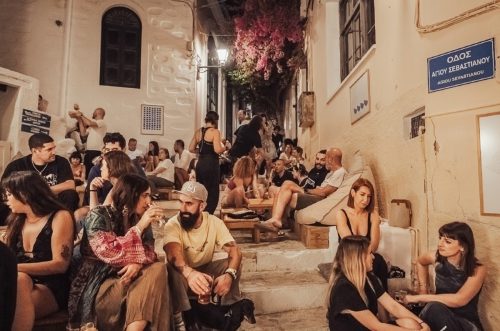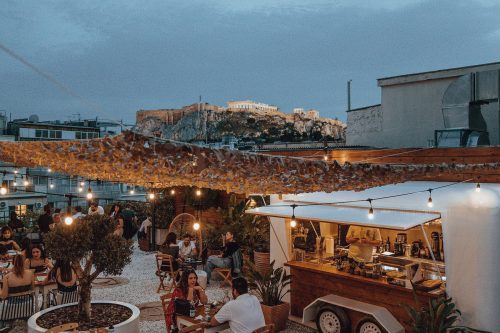Pascha is the biggest religious holiday of the year in Greece, which follows the Holy Week rites in commemoration of the Passion of Christ and the celebration of His Resurrection on Easter Sunday.
Holy Week is the week just before Easter that extends from today, Palm Sunday, until Holy Saturday and marks the last week of Lent. It has been named “Holy,” due to the significant events that take place for Christianity in regard to the sufferings of Jesus Christ. During this week every year, believers prepare themselves for Jesus Christ’s Resurrection with special traditions.
Here we share some of these age-old traditions.
Palm Sunday
At the beginning of Holy Week, the Greek Orthodox Church celebrates one of its most joyous feasts of the year. Palm Sunday is the commemoration of the Entrance of our Lord into Jerusalem following His glorious miracle of raising Lazarus from the dead.
Today, Greek Orthodox Christians mirror Jesus’ follower’s actions by carrying a small woven palm cross, which is given out during the Palm Sunday morning church service. While Palm Sunday still occurs during the Sarakosti (40 days of Lent), today the Greek Orthodox Church allows people to consume fish, oil, and wine and families gather after church to eat a seafood lunch.
Holy Monday to Holy Wednesday
From Holy Monday, the churches’ chandeliers and icons are covered in black and purple material, highlighting the atmosphere of mourning for the coming crucifixion and burial of Jesus Christ. Church services typically take place in the morning and evening of Holy Week.
Holy Monday is dedicated to two events: The life of Joseph, son of Patriarch Jacob, and the adventures of whom reflect the life of Christ and his sufferings. It is also dedicated to the story of the fruitless fig tree that Christ dried, with the fig tree symbolizing the soul of every human who lacks virtue.
Holy Tuesday is dedicated to the parable of the ten virgins which aims to teach people to be full of faith and charity, as well as the parable of ‘Taladwn’, which aims to teach people to be hardworking and cultivate their spirituality.
Holy Wednesday is dedicated to Mary Magdalene, who regretted her life of sin, washed Christ’s feet with myrrh, and was forgiven because of her strong faith.
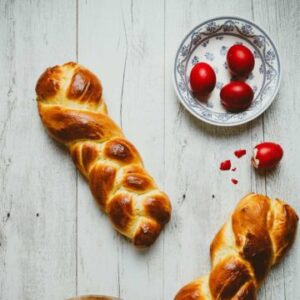
Holy Thursday
On Holy Thursday, Christianity celebrates the Last Supper of Jesus Christ with the twelve Apostles. In commemoration of this very important day, on Holy Thursday the preparations for Jesus Christ’s resurrection are underway in Greek households. According to tradition, people bake their koulourakia and lamprokouloura (Greek cookies), Tsourekia (Greek brioche), and traditional dye hard-boiled eggs, which symbolize the renewal of life since antiquity, while the colour red symbolizes Christ’s blood.
 Good Friday
Good Friday
On Good Friday you will hear church bells ring all day for the funeral of Jesus Christ. The Bible said that He died in the ninth hour, and at nine o´clock in the evening, Greeks follow a symbolic funeral procession. Many people participate in the quiet procession while carrying candles and the experience overall is quite solemn. Each church carries an Epitaphios (a wooden canopied bier representing the tomb of Christ) covered with flowers of various colours. People follow along the streets of cities, towns, and villages listening to psalms being chanted. This is a day of mourning and the strictest day of fasting, with many people consuming very little food on Good Friday.
Holy Saturday
Many people receive their Holy Communion during Saturday morning’s church service. When they return home, preparations begin for the festive dinner that is served after the Resurrection Midnight Mass. Magiritsa soup is a traditional dish prepared in most Greek houses (made with offal and finished in a lemon sauce). Before midnight, people gather in church holding candles, which they light with the “Holy Light” offered by the priest. Children hold their Lambades (candles) traditionally given to them by their godparents during Holy Week and join in on the midnight service. The Resurrection of Christ is celebrated when the clock strikes Midnight with drum beats and fireworks lighting the skies as the church bells ring and chanters begin the hymn ‘Christos Anesti’ (Christ is Risen), this is also chanted by all who attend. People then return home to gather around the dinner table and break their fast; this is when they crack their red eggs and say “Christos Anesti”.
 Easter Sunday
Easter Sunday
Easter Sunday is a huge celebration in Greece, as the Greek Orthodox Church commemorates Jesus rising from the dead. In many parts of the country, lamb is skewered and cooked over charcoal. In other regions, the meat for the Easter table is roasted in the oven. The atmosphere is festive and joyous and people listen and dance to local folk music. And if you are lucky enough to be in Greece during Easter, don’t miss one of the local festivals taking place, as this experience is unforgettable.
Easter celebrations take place all over Greece; some of the most famous destinations to celebrate Easter in Greece are Corfu, Patmos, Kalamata, and Kalymnos.
Main Image by IN+SIGHTS GREECE © (Copyright)

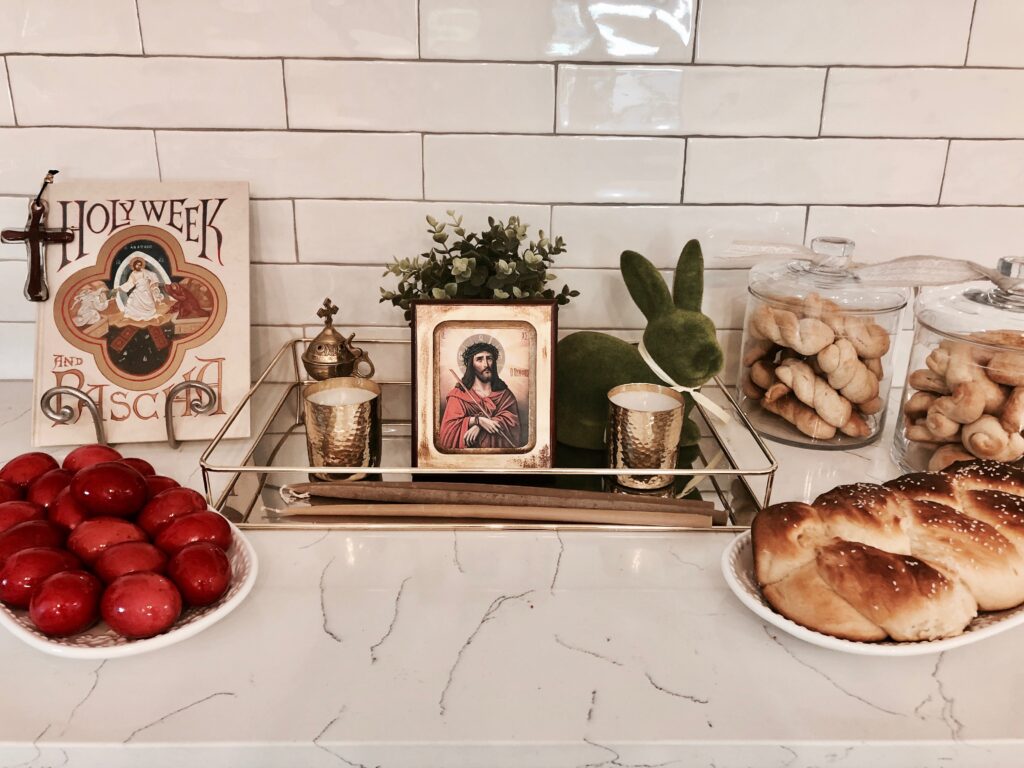
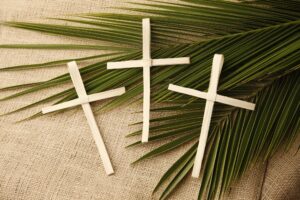
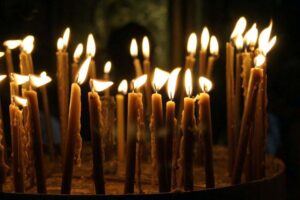
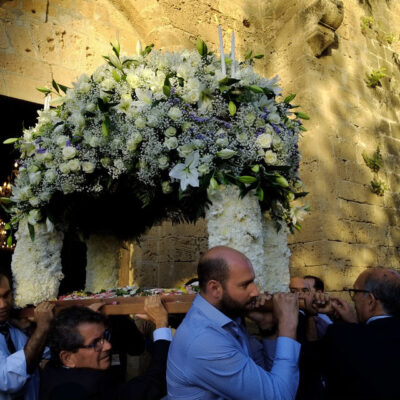 Good Friday
Good Friday 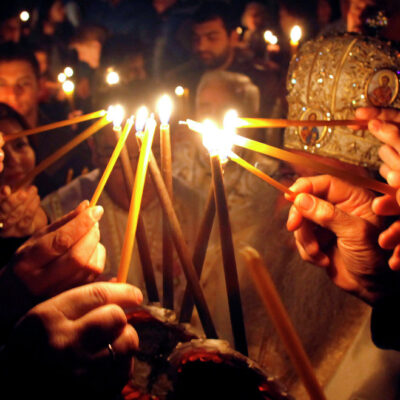
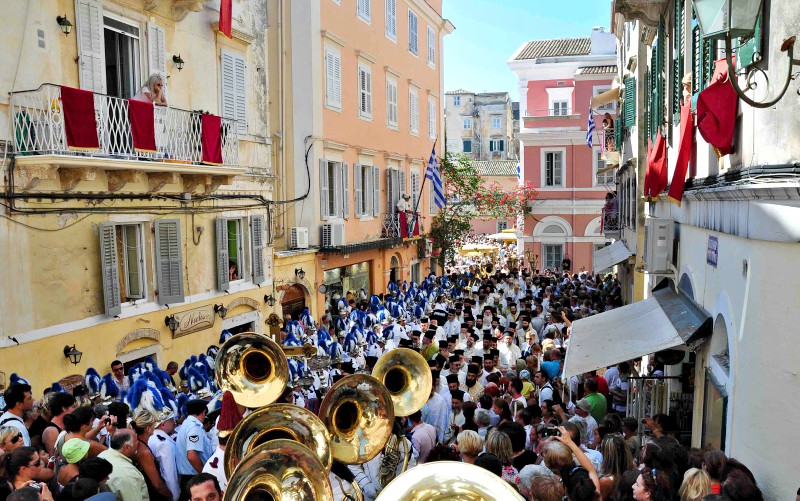 Easter Sunday
Easter Sunday
